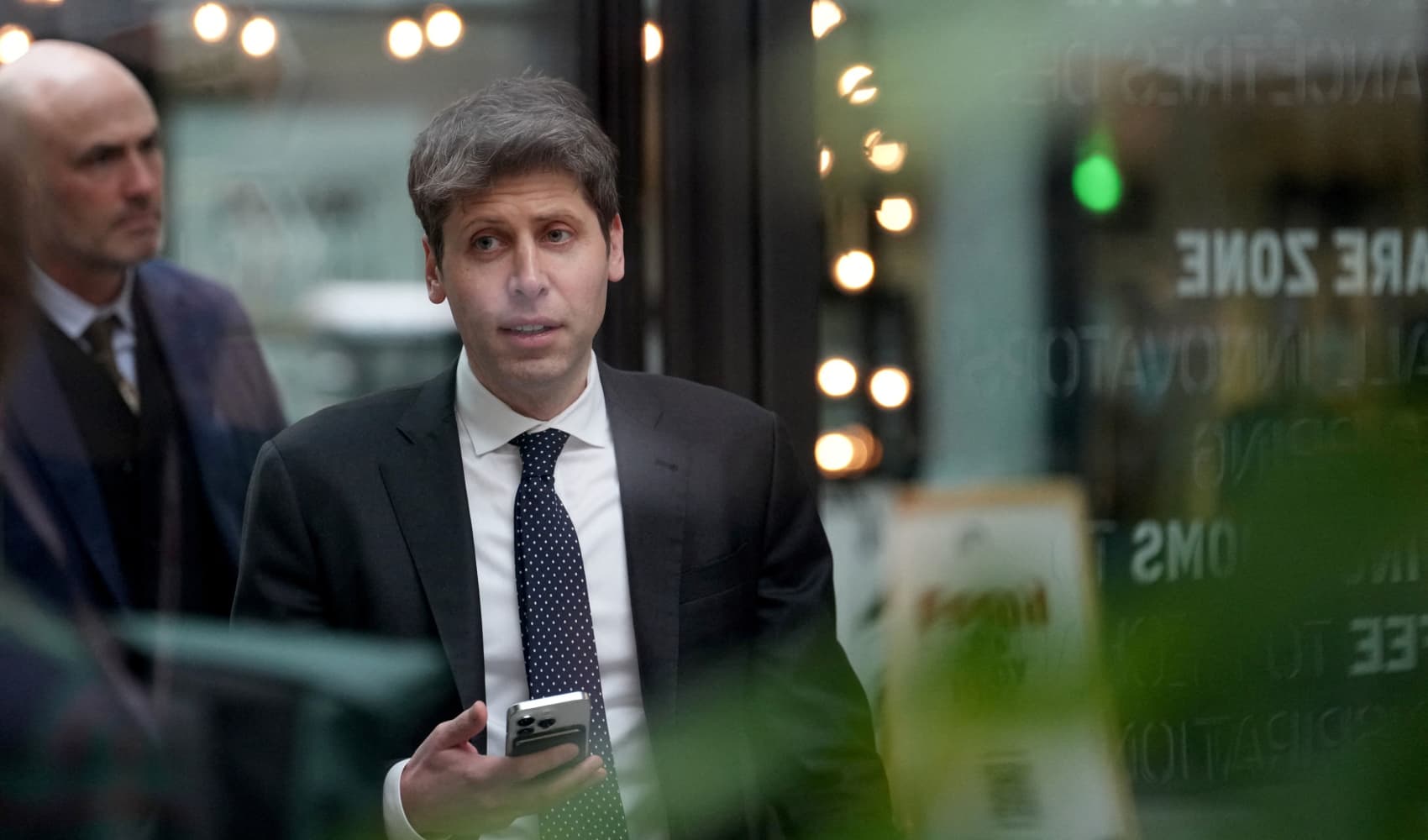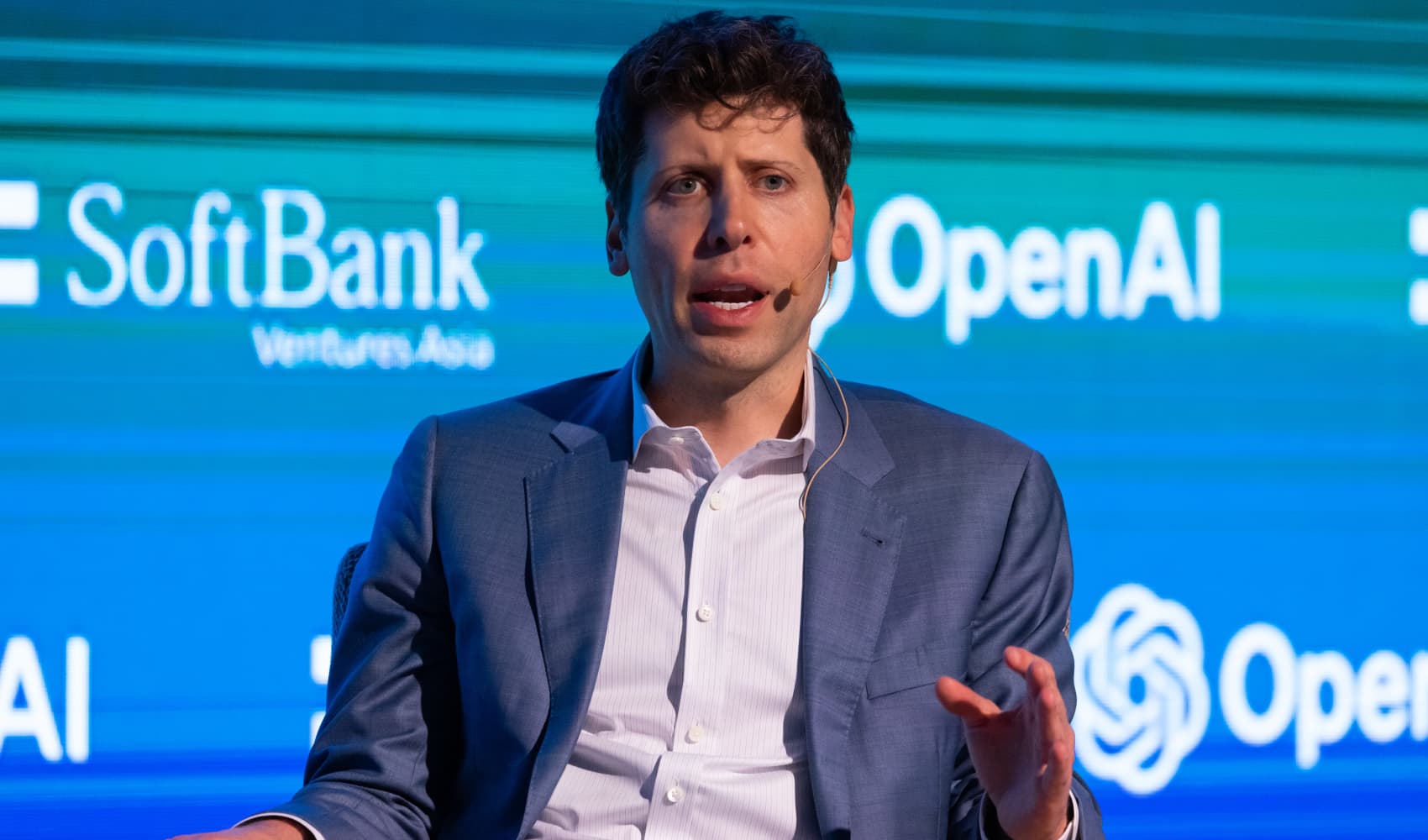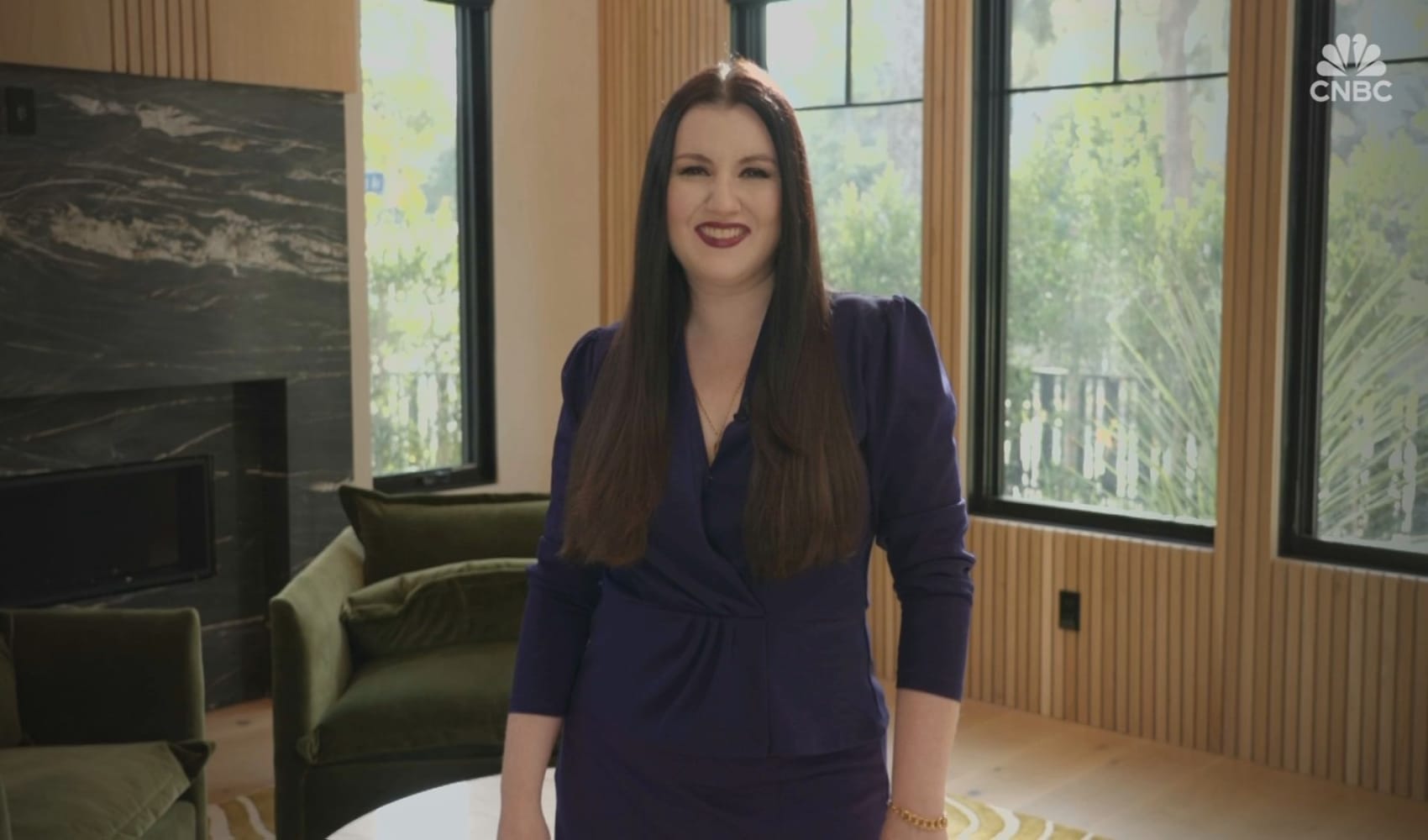Oklo's AI Power Play: Altman's Nuclear Startup Shift
Sam Altman Steps Aside: Oklo's AI Power Play
Introduction: A New Chapter for Nuclear and AI
The world of energy and artificial intelligence is about to get a whole lot more interesting. Sam Altman, the CEO of OpenAI, is stepping down as chair of the board of Oklo, a nuclear startup poised to revolutionize how we power our future. But why this move? And what does it mean for the future of AI and nuclear energy? Buckle up, because this is a story of strategic alliances, unlimited power, and a world hungry for both.
Why Sam Altman Stepped Down: Conflicts of Interest or Strategic Genius?
Let's get straight to it: Altman's departure isn't necessarily a sign of trouble. In fact, it could be a brilliant move that frees Oklo to pursue collaborations with OpenAI and other tech giants. Think of it like this: Imagine you're running two successful businesses, and those businesses could potentially work together, but your role in both is creating a bottleneck. Sometimes, stepping back is the best way forward. This allows Oklo to explore partnerships without the perceived conflicts of interest arising from Altman's leadership at both companies.
Oklo: Powering the Future with Advanced Nuclear Reactors
So, what exactly is Oklo? They're not your grandfather's nuclear power plant. Oklo is developing advanced nuclear reactors – small, efficient, and designed with safety in mind. These reactors are meant to be a game-changer, offering a clean, reliable, and incredibly powerful source of energy. Think of them as the "Tesla" of nuclear power – innovative, disruptive, and aiming for a brighter future.
The Data Center Dilemma: An Insatiable Thirst for Power
Here's where the plot thickens. Artificial intelligence is booming, and with it comes an insatiable demand for computing power. That computing power needs data centers, and data centers need energy – lots of it. Traditional power sources like fossil fuels are becoming increasingly unsustainable, and renewable sources like solar and wind aren't always reliable enough to meet the constant demands of these energy-hungry behemoths. Enter Oklo: providing a scalable, clean, and dependable solution.
Hyperscalers and the Hunt for Clean Energy
Hyperscalers – the companies that run massive data centers, like Google, Amazon, and yes, even OpenAI – are under immense pressure to reduce their carbon footprint. They're actively seeking clean energy solutions to power their operations. Nuclear power, with its low carbon emissions and high energy output, is becoming an increasingly attractive option. But these companies need to trust that the sources will be stable and consistent.
Partnership Potential: Oklo, OpenAI, and Beyond
With Altman stepping down, Oklo is now free to forge partnerships with a wider range of AI companies, including OpenAI itself. This opens up a world of possibilities. Imagine a future where Oklo's advanced nuclear reactors power OpenAI's data centers, fueling the development of cutting-edge AI technologies while minimizing environmental impact. It's a win-win situation for everyone – except maybe the fossil fuel industry.
The Advantages of Altman's Departure
Let's break down the specific advantages of Altman's decision:
Enhanced Flexibility
Oklo can now negotiate partnerships without the constraints of Altman's dual role. They have more flexibility in structuring deals and exploring various options.
Reduced Perceived Conflicts of Interest
Having a single leader for both a power company and an AI company might be seen as creating potential bias. By removing this, Oklo signals fairness to all interested parties.
Increased Credibility
The move enhances Oklo's credibility as an independent energy provider, making them a more attractive partner for companies seeking a reliable and unbiased source of power.
The Technical Prowess of Oklo's Reactors
What makes Oklo's reactors so special? They're designed with advanced technologies that enhance safety, efficiency, and sustainability. Here's a glimpse:
Small Modular Reactors (SMRs)
Oklo is focusing on Small Modular Reactors (SMRs), which are smaller and more manageable than traditional nuclear plants. This allows for greater flexibility in deployment and reduces the risk of large-scale accidents.
Advanced Fuel Cycles
Oklo's reactors are designed to use advanced fuel cycles that extract more energy from nuclear fuel and reduce the amount of nuclear waste produced. This makes the process more sustainable and environmentally friendly.
Enhanced Safety Features
Oklo incorporates multiple layers of safety features, including passive safety systems that automatically shut down the reactor in case of an emergency, minimizing the risk of accidents.
The Regulatory Landscape: Navigating the Nuclear Maze
Developing nuclear reactors is a complex and heavily regulated process. Oklo faces numerous challenges in navigating the regulatory landscape and obtaining the necessary approvals to deploy its technology. It's like trying to climb Mount Everest with a bureaucratic backpack.
Public Perception: Overcoming the Nuclear Stigma
Nuclear energy has a complicated image in the public eye. Many people associate it with disasters like Chernobyl and Fukushima, leading to fear and skepticism. Oklo needs to overcome this stigma by demonstrating the safety and reliability of its advanced reactors and communicating the benefits of nuclear energy to a wider audience.
The Economic Viability of Advanced Nuclear
Can advanced nuclear energy compete with other sources of power? The answer depends on a variety of factors, including construction costs, operating expenses, and the price of competing fuels. Oklo needs to demonstrate that its reactors can be economically viable and offer a competitive alternative to traditional energy sources. This is where scale and innovation become crucial.
The Environmental Benefits: A Cleaner Energy Future
Despite the challenges, advanced nuclear energy offers significant environmental benefits. It produces virtually no greenhouse gas emissions, making it a crucial tool in the fight against climate change. By reducing our reliance on fossil fuels, nuclear energy can help create a cleaner, healthier, and more sustainable future. It is important to convey these benefits to the public to encourage support for these projects.
The Future of Nuclear Energy: A Renaissance on the Horizon?
Is nuclear energy poised for a comeback? With the growing demand for clean energy and the advancements in reactor technology, the answer is likely yes. Oklo is at the forefront of this nuclear renaissance, paving the way for a future powered by safe, reliable, and sustainable nuclear energy. The next decade could be pivotal in shaping the future of energy.
Oklo's Next Steps: What's on the Horizon?
What can we expect from Oklo in the coming months and years? Expect to see them:
- Pursue strategic partnerships with AI companies and hyperscalers.
- Continue developing and refining their advanced reactor technology.
- Navigate the regulatory landscape and secure necessary approvals.
- Educate the public about the benefits of nuclear energy.
- Expand their operations and deploy their reactors in strategic locations.
Conclusion: A Bold Move with Big Implications
Sam Altman's decision to step down as chair of Oklo is a bold move that could have far-reaching implications for the future of energy and artificial intelligence. It allows Oklo to pursue strategic partnerships without perceived conflicts of interest, unlocking a new era of collaboration between the nuclear and AI industries. This is more than just a change in leadership; it's a strategic realignment that could shape the future of energy and technology. Whether this bold move will result in the benefits outlined remains to be seen, but the future definitely looks bright.
Frequently Asked Questions
Here are some frequently asked questions about Sam Altman's departure and Oklo's future:
- Why did Sam Altman step down as chair of Oklo?
Altman stepped down to give Oklo more flexibility to pursue partnerships with OpenAI and other hyperscalers, avoiding potential conflicts of interest. - What is Oklo's core business?
Oklo is developing advanced nuclear reactors that are small, efficient, and designed to provide clean and reliable energy. - How will Oklo's reactors benefit data centers?
Oklo's reactors can provide a stable and sustainable source of power for data centers, reducing their carbon footprint and ensuring reliable operations. - What are the main advantages of Oklo's reactors compared to traditional nuclear plants?
Oklo's reactors are smaller, more modular, safer, and designed to use advanced fuel cycles that reduce nuclear waste. - What challenges does Oklo face in the future?
Oklo faces challenges in navigating the regulatory landscape, overcoming public perception issues, and demonstrating the economic viability of its reactors.



